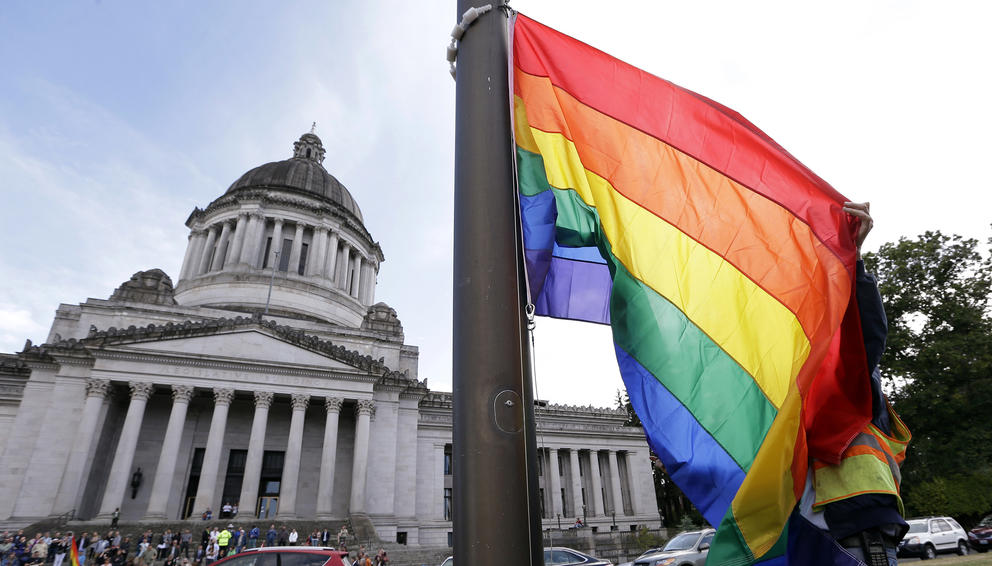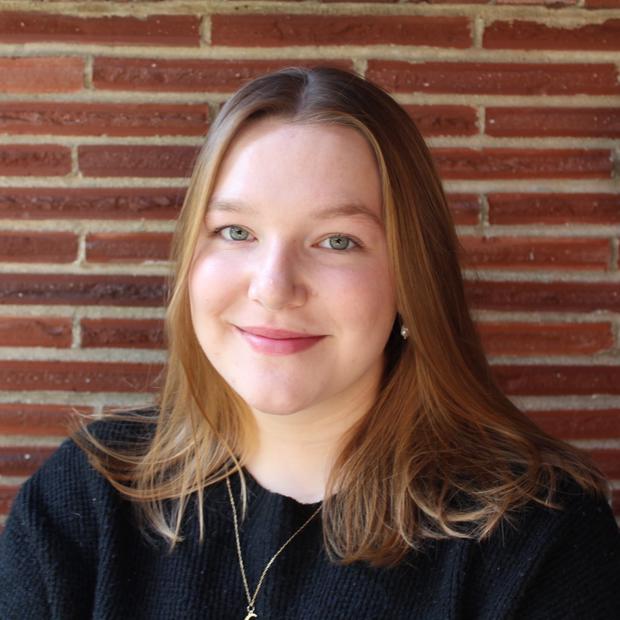School boards would also be asked to comply with a model policy, and adopt a curriculum that includes the perspectives and experiences of historically marginalized groups, including diverse socioeconomic backgrounds, racial and ethnic groups, and those with disabilities.
The bill, first introduced last year, was debated during a period characterized by increased hostility toward the LGBTQ+ community. Last year, the American Civil Liberties Union reported a record high number of anti-LGBTQ+ bills were introduced across the nation, with lawmakers proposing 474 more this year. Hate crimes in Washington have peaked during the same time. Washington state reported 576 hate crimes in 2021 – up 28% from 451 in 2020. That’s the highest number of hate crimes reported in the state – the majority of which were racially motivated – since at least 2000.
Proponents of SB 5462 argued the bill took on extra meaning during a time of increased hostility toward the LGBTQ+ community, and that inclusive curricula are needed so students feel safe and valued at school.
“Even though we live in a place that tends to be on the supportive and progressive end, it’s hard when you see the things that are happening across the country,” Issaquah school district physics teacher Kristie Bennett said. “This is not an issue that is in the past, it’s an issue that is in the present.”
While some legislators expressed fear that the proposed curriculum could hurt students by diverting attention from academics, prime sponsor Sen. Marko Liias, D-Edmonds, says the research is clear: Students have better outcomes when they feel represented in class. A 2017 study found higher reading comprehension scores for primary and middle school students when presented with culturally relevant texts. Research also shows that LGBTQ+ students in schools with inclusive curricula report feeling safer and experiencing less bullying.
”When people feel a connection to what they’re learning, they do better,” Liias said. “That’s really the spirit of the bill.”
Current state K-12 social studies learning standards outline that curricula should incorporate diverse perspectives and cultural backgrounds. Specifically, students are expected to understand the effects of European settlements on Native American tribes, the history of slavery in the U.S. and the contributions of various ethnic groups that have shaped U.S. history.
But while OSPI includes gender expression and sexual orientation as aspects to consider in the development of curricula, LGBTQ+ education is not required. This bill specifically calls that out by updating learning standards to include LGBTQ+ education.
Liias says he knows that many educators do include LGBTQ+ and inclusive curricula in the classroom, but because there isn’t a uniform standard, like the one that would be established under the bill, this doesn’t happen across the state.
Bennett said they knows teachers who create space for queer stories and perspectives in their lessons, themself included, but that this usually happens only in classrooms where the educator has made a special effort to do this.
“Sometimes our standards are so broad that it comes down to what the educator is passionate about,” Bennett said.
Even in a progressive state like Washington with a history of trailblazing LGBTQ+ rights, Bennett said anti-LGBTQ+ rhetoric in the media makes its way to educators, who worry that teaching about these topics might somehow get them in trouble.
A number of U.S. states ban teachers from discussing LGBTQ+ topics in the classroom. Florida’s “Don’t Say Gay” bill, signed into law by Gov. Ron DeSantis in March 2022, prohibits the discussion of gender identity and sexual orientation for certain grade levels, allowing parents to take legal action against school districts that violate the policy.
Bennett said SB 5462 will reiterate to teachers that Washington supports LGBTQ+ education, and that teachers won’t get in trouble for lifting up their students’ identities.
”When you don’t have that resounding and persistent reassurance, it makes it difficult for educators to know if what they’re doing is a risk,” Bennett said. “This is a way of reassuring educators that this is in line with what Washington state values.”
Despite wide support from educators, who Liias said proposed this legislation, opponents have called the bill overhanded, arguing it will undermine the local control granted to school boards, who are elected by district residents and tasked with developing final curricula based on OSPI’s standards. But the bill language acknowledges this concern and reiterates that final curriculum decisions are still in the hands of school boards.
”It just seems like the trend is to take more and more discretion away from the local communities and force-feed stuff from the Legislature onto all 295 school districts,” said former school board member Sen. Brad Hawkins, R-East Wenatchee, during a Senate floor debate earlier this year.
Liias said the bill was designed to involve local school boards in developing inclusive curricula. Acting in line with a model policy established by the bill, school districts can choose which communities to highlight based on the makeup of the school district.
“We still are empowering our local school districts to do the important work of finding curriculum and materials that are appropriate for the community,” Liias said. “We just want to make sure that there’s this broad expectation that they’ll be inclusive.”
Some legislators have also questioned how inclusive curricula would be incorporated into non-humanities courses like math and science. “I can’t figure that out, math is just math,” Rep. Joel McEntire, R-Cathlamet, said during a House floor debate.
To Liias, an inclusive curriculum shouldn’t be confined to history and social studies; it should flow through all subjects. From the practice problems used in algebra to the scientists discussed in biology, not all key players need to be overwhelmingly white and straight.
Bennett said they’ve found simple ways to lift up students’ in the classroom, like asking them to do a presentation on a physicist who they relate to in some way. And they’ve seen firsthand how, when students connect with what they’re learning, they engage with the material.
After passing both the House and Senate, SB 5462 now heads to Gov. Inslee’s desk for his signature. Washington now joins six states, including Oregon and California, in requiring LGBTQ+ curriculum.
“This is what’s best for students, all students, not just our LGBTQ+ students,” Bennett said.



